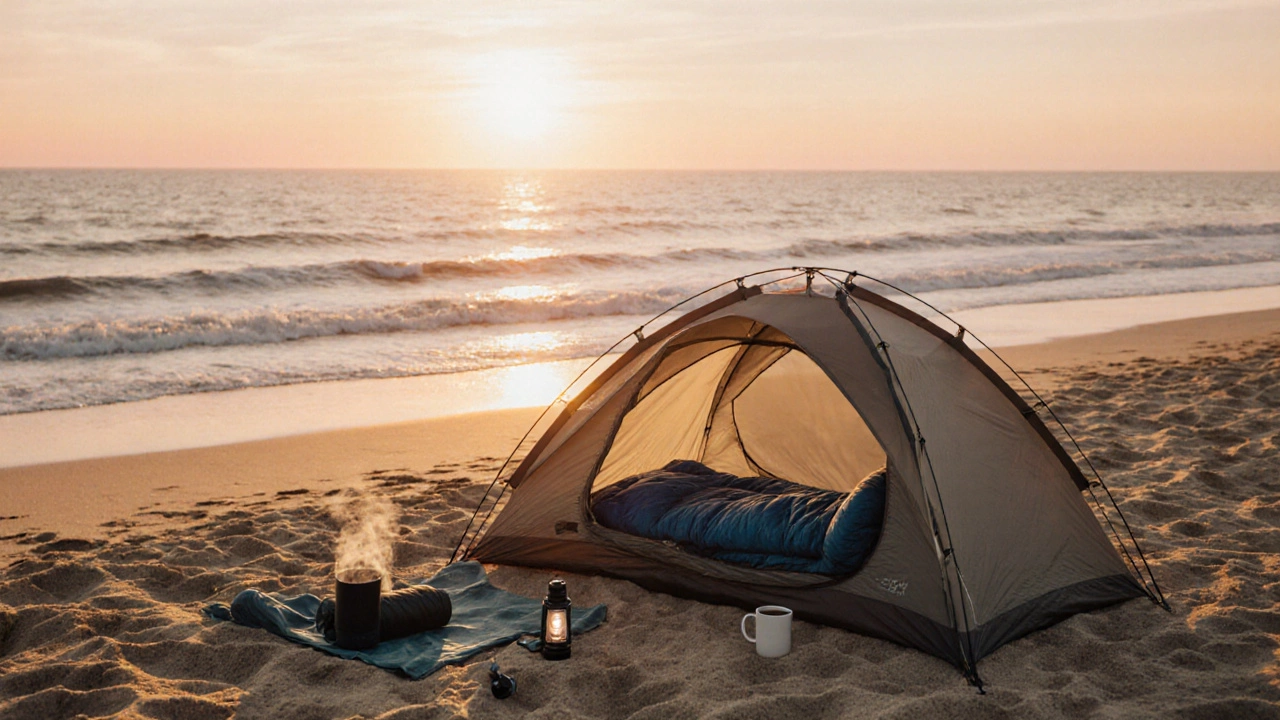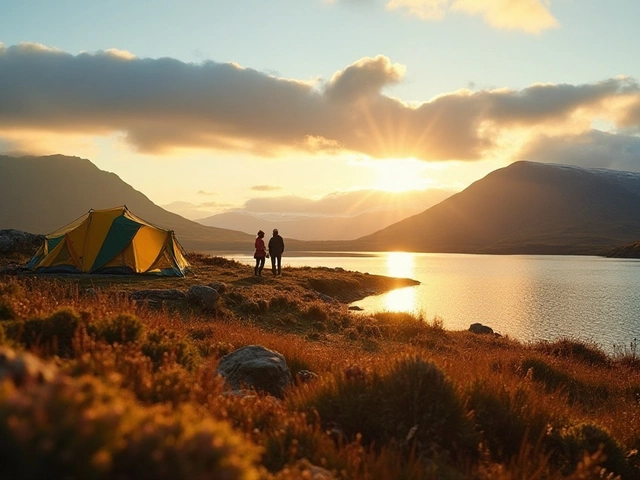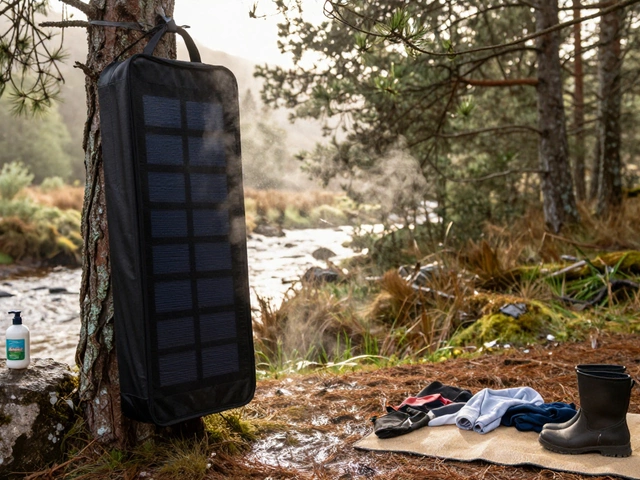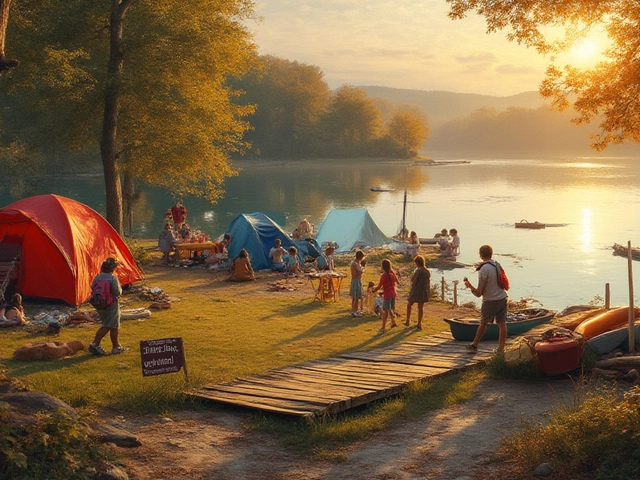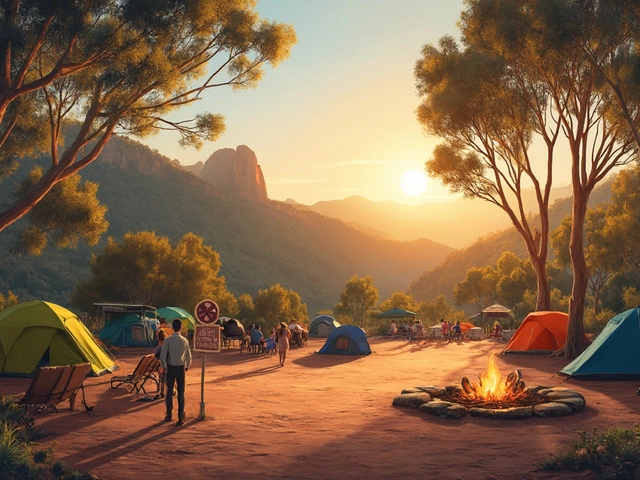Imagine waking up to the sound of waves, the sunrise spilling gold over sand, and no hotel bill to worry about. That’s the dream of free beach camping California - but is it actually legal, and how do you do it without getting a ticket?
Free beach camping in California is the practice of setting up a tent or bivy on a public shoreline without paying a campsite fee. It falls under the broader umbrella of wild camping, but the coastal context adds a layer of state and local rules that differ from inland backcountry spots. Below you’ll find a step‑by‑step guide that answers the biggest questions, points you to the few places where overnight stays are actually allowed, and shows how to stay safe, legal, and low‑impact.
Legal Landscape: What the Rules Really Say
The California coast is managed by several agencies: the California Department of Parks and Recreation (CDPR), the National Park Service (NPS), county sheriffs, and city ordinances. The core piece of legislation is the Coastal Act, which protects public beach access but does not grant a right to camp. In practice, most counties view overnight stays on the beach as a violation of trespassing or camping ordinances unless a specific permit is issued.
Key takeaways:
- State beaches are generally day‑use only. Staying after sunset without permission can lead to a citation.
- National Seashores (e.g., Point Reyes National Seashore) allow backcountry camping only in designated sites, many of which require a reservation and fee.
- County‑owned beaches may issue free or low‑cost permits for a single night, especially in less‑populated north‑coast areas.
- Fire bans are common. Even a small camp stove can be prohibited during high‑risk periods.
Where Free Beach Camping Is Actually Possible
While the list isn’t endless, a handful of spots are known for allowing overnight stays without a fee-provided you follow local guidelines. Below is a regional breakdown.
Northern California
- Humboldt County - Trinidad County Beach: No formal campsite, but the county sometimes tolerates a single‑tent stay up to 12 hours after sunset if you’re respectful and leave no trace.
- Mendocino County - Westport Beach: The county permits “primitive camping” a short walk from the parking lot. You’ll need to stay under the flag‑pole line (about 200 ft from the water) and keep noise down.
- Del Norte County - Crescent City Beach: Free overnight camping is allowed in the designated “Crescent City State Beach” parking area, but you must be out of the sand dunes before 10 am.
Central Coast
- Santa Cruz County - Seabright State Beach: While the state park officially prohibits camping, the county sometimes issues a free “overnight parking” permit for a single tent on the sand. Call the Santa Cruz County Sheriff’s Office to confirm availability.
- Monterey County - Asilomar State Beach: Limited to day use, but nearby private hotels often have “shore‑side” parking that can be used for a night‑time stay if you’re willing to nap in your car and walk to the beach at dawn.
Southern California
- San Diego County - Silver Strand State Beach: The county has a “Free Camping” pilot program for a handful of spots along the Silver Strand. It requires a simple online registration (no fee) and limits stays to 24 hours.
- Orange County - Huntington Beach (the “Surf City” area): The city allows a “overnight drive‑by” for RVs and campers, but you must leave the vehicle and set up a small tent no closer than 150 ft from the waterline. No fires, and you must be gone by 9 am.
Remember, even in these “allowed” spots, the rule of thumb is to keep your tent away from tide‑affected zones, respect private property, and never leave trash behind.
How to Stay Legal: Practical Tips for Every Beach
- Check the local ordinance. A quick call to the county sheriff or city park office can save you a ticket.
- Use tide charts. Sites like NOAA Tide Predictions show high‑water marks; set up at least 30 ft above the highest predicted reach.
- Obey fire restrictions. If a fire ban is in effect, use a portable stove with a canister and keep it on a flat rock away from vegetation.
- Pack out everything. Follow Leave No Trace principles: carry a trash bag, take all food scraps, and leave the sand as you found it.
- Mind the wildlife. California’s coast is home to sea otters, gulls, and occasionally mountain lions near dunes. Store food in airtight containers and never feed animals.
- Limit your stay. Most “free” spots allow only one night. If you need more time, move to a nearby paid campground.
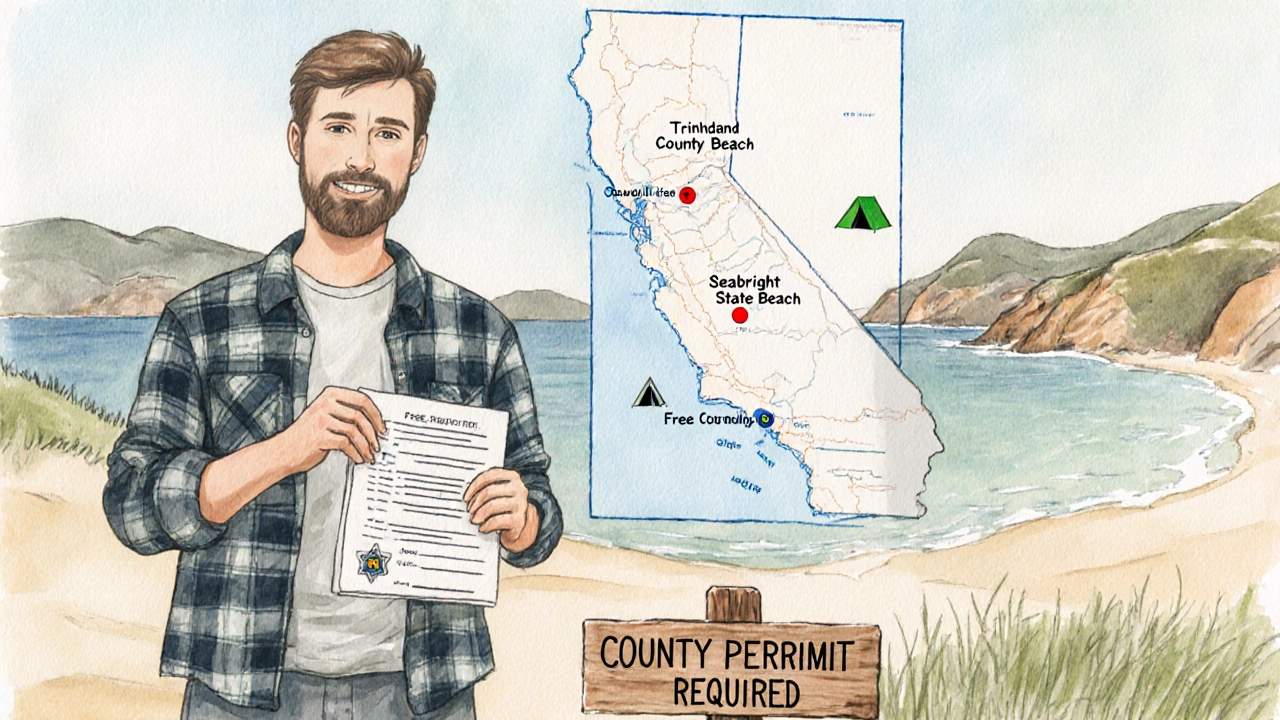
Gear Checklist for a No‑Fee Beach Night
- Lightweight four‑season tent (sand can be compacted under the footprint).
- Compact sleeping bag rated 30 °F (many coastal nights are cool).
- Water‑proof ground tarp - protects against damp sand.
- Portable stove with fuel canisters - no campfires.
- Headlamp + extra batteries (no electricity).
- Reusable water bottles + water‑filter straw (salt water is not drinkable).
- Trash bags (for packing out all waste).
- Sun protection - hat, SPF, and a UV‑blocking beach umbrella.
Free vs. Paid Beach Campgrounds: Quick Comparison
| Feature | Free Spots (Typical) | Paid Campgrounds (Typical) |
|---|---|---|
| Cost | $0 (permit may be required) | $30‑$70 per night |
| Facilities | None - bring everything | Restrooms, showers, fire pits |
| Permits | Often needed, free online or by phone | Reservation system, paid upfront |
| Location | Direct shoreline, sometimes off‑road access | Often set back from beach, sometimes with dunes |
| Safety | Requires self‑reliance, watch tides | Staffed sites, lifeguards nearby |
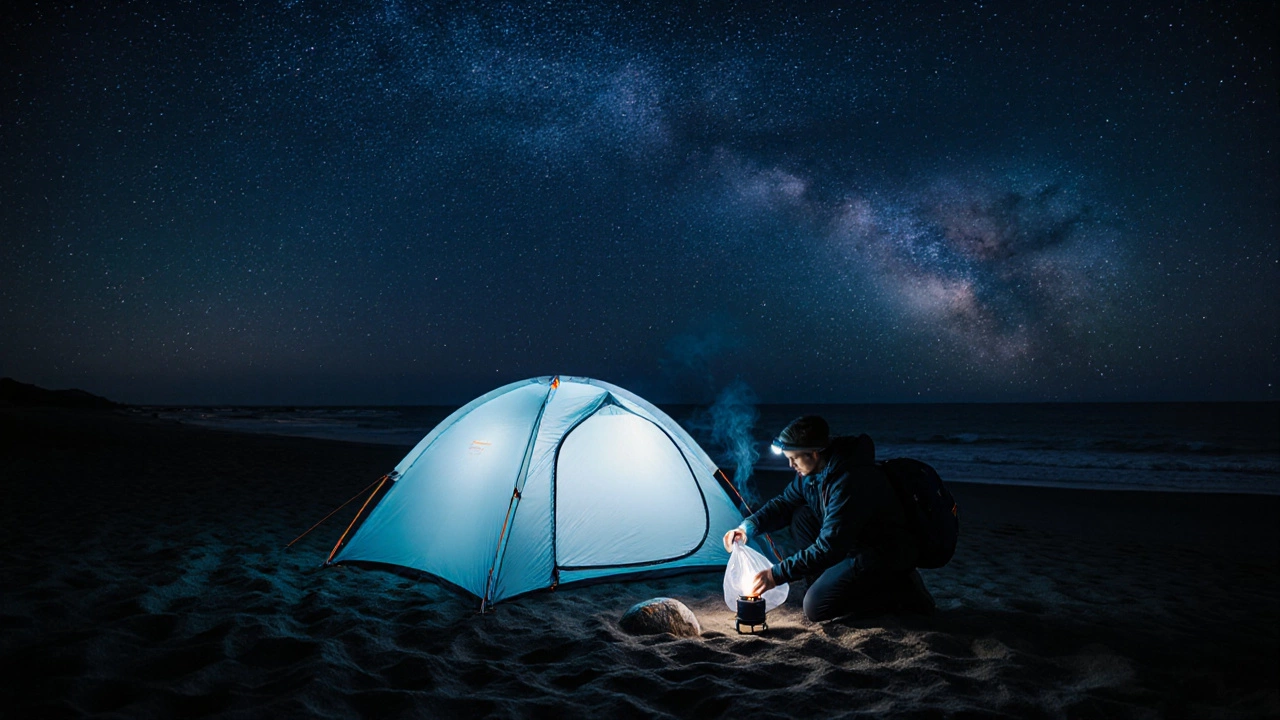
Common Questions Answered
Can I camp on any California beach for free?
No. Most state‑run beaches are day‑use only. Free overnight stays are only tolerated in a few county‑managed sites or where a free permit is explicitly issued.
Do I need a permit to camp on a free beach?
Often yes. Counties such as Humboldt, Santa Cruz, and San Diego have online or phone‑based free‑permit systems. Call the local sheriff’s office to confirm before you go.
What are the biggest risks of free beach camping?
Tides can flood your site, wildlife may be attracted to food, and without facilities you risk dehydration or injury. Always check tide tables, store food securely, and carry enough water.
Is it legal to set up a tent on a private beach?
No. Private property is off‑limits without the owner’s permission. Trespassing fines can be steep, and many private beaches have surveillance.
How do I stay low‑impact while camping on the sand?
Follow the Leave No Trace “7 Principles”: plan ahead, travel and camp on durable surfaces, dispose of waste properly, leave what you find, minimize campfire impact, respect wildlife, and be considerate of other visitors.
Final Thoughts
Free beach camping in California isn’t a free‑for‑all open field, but with a bit of research you can snag a legal spot, enjoy a night of surf‑side stargazing, and keep your wallet happy. The key is respecting local rules, staying aware of tides, and packing out every piece of trash. When the free options run out, the state’s paid campgrounds are just a short drive away and offer all the comforts you might miss.
